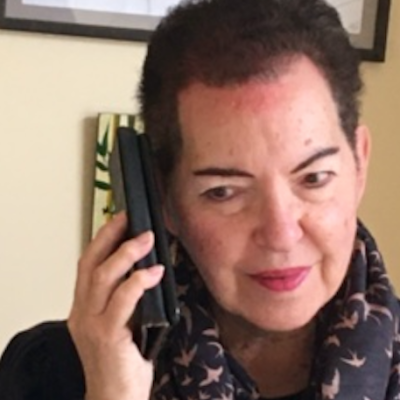Any questions? Public speaking and the unexpected
Do you ever feel anxious when you deliver a speech or a presentation or when you attend a meeting or training session?

In an earlier article in July 2020 for Life Coach Directory, I focused on Managing the fear of public speaking. In that article, I stressed the value of preparation, structure and following a range of acknowledged public speaking techniques to minimise stress and anxiety around public speaking. However, what do you do in the face of the unexpected?
Are you someone who is fine with presenting or contributing at a meeting but doesn’t relish the unexpected comment or the question time at the end? Some people enjoy the unexpected and the opportunity to engage. Others say they are fine with the part they can prepare but are less confident when they feel they cannot prepare. Here we consider tips and techniques to handle awkward contributions and unexpected questions.
Public speaking: How to handle unexpected questions
A useful strategy at the outset is to clarify when you’ll take questions. For example: “I’ll take questions at the end, as your queries may be covered during my talk. However, if you have a question for clarification or want me to speak up, please do indicate you want to speak”. This way you minimise interruptions since you’ve given the audience guidelines.
Here we look at some situations you may encounter and how to handle them.
Audience questions that turn into speeches
Taking questions from the audience or being open to interactions during your speech requires good time management. To pre-empt overrunning, clarify how long people have for contributions, e.g. “I’ll take questions now. Please keep your contributions brief (or be more precise: “to one minute”) to allow everyone who wishes to speak”.
You cannot hear or understand the question
It can be embarrassing not to understand the question. You can say “I’m having difficulty understanding/hearing the question. Please could you repeat it slowly" and if you still don’t understand: "Please could you rephrase it”. If you still don’t understand, you could ask if someone in the audience could ask the question or ask the questioner to write it down and pass it to you. Meanwhile, take the next question and come back to this.
You are asked multiple questions by one person
Separate the questions and say which order you’ll answer them in. For example: “There are three points here. I’ll deal with the in the following order. First …second…third” and so on. "Firstly …" then repeat the question and answer it and do the same with the other two questions.
You are asked questions only of interest to the questioner
You may be able to pre-empt some irrelevant questions by clarifying at the outset what you will and won’t be covering in your talk or presentation. Point to sources or resources where people can find certain information that may be of interest but which you are not covering today.
When someone does ask a question that’s off at a tangent and likely to only be of interest to them, offer to speak to them afterwards. Be polite, however irrelevant it may be, for example: “It’s an interesting question. As it’s not directly related to our discussion today, I suggest we speak about it at the end”.
Hostile questions and questioners
If the topic is controversial, you may expect some hostility from one or more in the audience. Try to bring down the temperature by addressing the question calmly and factually. For example, questioner: 'Isn’t this meeting a sham? It’s supposed to be consultative, but our views don’t matter." Sample response: "I want to reassure you that this is a consultative process. We will be taking an anonymous poll after the meeting to gauge opinion on the proposed changes”.
When you don’t know the answer
No one knows the answer to everything, and it’s fine to say you don’t have the answer. Avoid saying “I’m terribly sorry” and say with confidence: “I don’t have the answer now. I will find out and come back to you” and take their details if you don’t have them. Alternatively, ask if someone in the audience has the answer, and, if they do, thank them for their contribution.
The last word
In case the last question is tinged with negativity, prepare in advance a closing statement which summarises what you’ve presented and leaves your audience on a positive note. This might also contain your call to action: what you want your audience to think and do as a result of what you’ve said.
Prepare for the unexpected
In summary, there’s much you can prepare for, even for the unexpected. Note all the questions you could be asked and decide how to answer them. Then jot down the worst question you could be asked and decide how to respond to that too. You will feel more in control and more confident if you have these strategies in place.
I’d like to hear from you
a) If you have questions or interesting stories to tell about public speaking.
b) If you would like one-to-one coaching help with handling speaking anxiety or structuring and delivering a speech, presentation, or contributions at meetings.
Contact me and I will aim to reply within 24 hours.

Find a coach dealing with Confidence
All coaches are verified professionals






